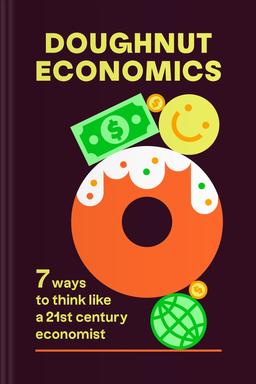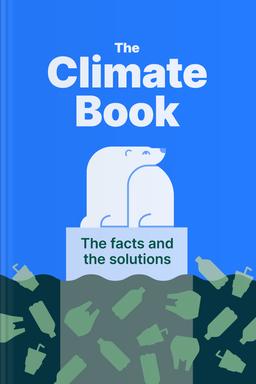What is Falter about?
This thought-provoking book explores the dire consequences of climate change and human activity on the planet. It examines the interplay between technology, economics, and the environment, questioning whether humanity is steering its own course towards disaster. McKibben challenges readers to confront the impending crisis and consider the choices that lie ahead, urging a reevaluation of our relationship with nature before it's too late.
Who should read Falter
- Environmental activists concerned about climate change
- Philosophers exploring human existence and futures
- General readers interested in sustainability and ecology
What is No One is Too Small to Make a Difference about?
This powerful collection of speeches by a climate activist emphasizes the urgent need to address the climate crisis. Through passionate and direct language, it conveys the message that everyone, regardless of age or status, can contribute to significant change. The book calls for global awareness and action, challenging readers to confront the realities of environmental degradation and the responsibilities we all share in safeguarding the planet for future generations.
Who should read No One is Too Small to Make a Difference
- Young activists seeking inspiration and motivation.
- Environmentalists aiming to drive change and awareness.
- Concerned citizens wanting to understand climate urgency.
What is Trust about?
This book explores the critical role of trust within American democracy, emphasizing its importance in politics, community, and national unity. The author, drawing from personal experiences and broader societal observations, advocates for a collective effort to rebuild trust among citizens and institutions. Through anecdotes and insights, the narrative highlights how trust can forge connections and inspire meaningful change in challenging times.
Who should read Trust
- Political enthusiasts seeking fresh perspectives on trust.
- Readers interested in American political dynamics and leadership.
- Those curious about modern challenges in governance and policy.
What is Doughnut Economics about?
This book challenges conventional economic theories by proposing a new model centered around sustainability and social equity. It presents seven principles to rethink economic success, emphasizing ecological balance and human well-being. Through engaging visuals and practical examples, it advocates for a system that prioritizes a 'doughnut' shape of economy—balancing essential human needs with the planet's ecological limits, urging a transformative shift in how we approach economics.
Who should read Doughnut Economics
- Economics students seeking modern perspectives.
- Environmental activists focused on sustainability.
- Business leaders wanting innovative economic strategies.
What is The Climate Book about?
This book presents a comprehensive overview of the climate crisis, detailing its causes, impacts, and urgent need for action. Drawing from the insights of scientists and activists, it highlights real-world solutions and the collective power of communities to combat climate change. The narrative serves as both a wake-up call and a hopeful guide, empowering readers to understand their role in the global effort towards sustainability and environmental justice.
Who should read The Climate Book
- Environmental activists seeking actionable solutions.
- Students interested in climate science and activism.
- Concerned citizens wanting to understand climate change impacts.




